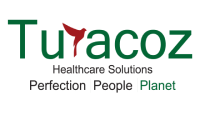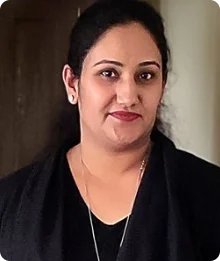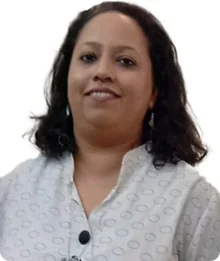In the intricate world of medical research and publication, the journey from discovery to global dissemination is both vital and daunting. Medical writing, a crucial aspect of this journey, entails the meticulous crafting of research papers, regulatory documents, and educational material. However, the complexities and challenges inherent in medical writing often slow down the process, impacting the timely dissemination of important health information. Fortunately, the advent of Automation and Artificial Intelligence (AI) offers a promising solution, revolutionizing the way medical professionals approach the writing process.
The Intricacies of Medical Writing
Medical writing goes beyond translating complex scientific data into readable content. It ensures accuracy, clarity, compliance with regulatory standards, and creates a narrative that is accessible to its intended audience, whether healthcare professionals, regulatory authorities, or the public. The challenges are multifaceted:
- Adherence to Regulatory Guidelines: Medical writing is governed by stringent regulations and guidelines set forth by authorities such as the Food and Drug Administration (FDA), European Medicines Agency (EMA), and International Council for Harmonisation of Technical Requirements for Pharmaceuticals for Human Use (ICH). Ensuring compliance with these ever-evolving standards is a constant battle, requiring meticulous attention to detail and a deep understanding of the regulatory landscape.
- Interpreting Complex Scientific Data: Medical writers are tasked with distilling highly technical and often intricate scientific data into clear, concise, and accessible language. This process necessitates a thorough comprehension of the subject matter, as well as the ability to effectively communicate complex concepts to diverse audiences, ranging from healthcare professionals to regulatory bodies and the public.
- Maintaining Scientific Accuracy: Precision and accuracy are paramount in medical writing, as even minor errors or inaccuracies can have far-reaching consequences. Writers must meticulously cross-reference and validate every claim, statistic, and finding, ensuring that the information presented is scientifically sound and unbiased.
- Navigating Interdisciplinary Collaboration: Medical writing frequently involves collaboration among diverse stakeholders, including researchers, clinicians, statisticians, and regulatory experts. Facilitating effective communication and achieving consensus among these disparate groups can be a daunting task, requiring exceptional interpersonal and project management skills.
- Ensuring Consistency and Clarity: Maintaining consistency in terminology, style, and tone across a vast array of documents, from clinical study reports to regulatory submissions, is a significant challenge. Writers must strike a delicate balance between adhering to established guidelines and conveying information in a clear, concise, and accessible manner.
- Time Constraints: Meeting publication and regulatory timelines and quick dissemination of medical science information without compromising on quality is also vital for medical writers.
Click Here:- Between Progress and Protection: The Struggle over AI Data Sharing in Publishing
Traditional Medical Writing: A Labor-Intensive Process
Traditionally, the medical writing process has been manually intensive, relying heavily on the expertise and time of skilled writers who navigate through vast amounts of data, regulations, and editorial standards. This approach, while effective, is fraught with the potential for delays and inefficiencies, often leading to bottlenecks in research publication or product development timelines. Let’s check out what can ease our task:
- Embracing Automation in Medical Writing: Enter the era of AI and automation – technologies that promise to streamline the medical writing process, enhance accuracy, and significantly reduce time to publication.
- Data Analysis and Interpretation: AI algorithms can quickly sift through large datasets, identifying patterns and crucial findings, thereby assisting in the accurate interpretation of complex data.
- Content Generation: AI can help draft sections of documents based on data inputs, generate descriptive statistics, and even suggest narrative structures for papers or reports.
- Compliance Checks: Automated tools can scan documents to ensure adherence to regulatory standards and guidelines, flagging inconsistencies or areas that require revision.
AI in Action: The Writing Process Revolutionized
Medical writing steps can be transformed markedly with AI:
- Pre-writing: AI tools preprocess data, highlighting key results and suggesting angles for the narrative.
- Drafting: Automated content generation helps draft sections of the document, which can then be refined by human writers.
- Review and Compliance: AI-assisted review processes ensure accuracy and adherence to guidelines, streamlining revisions.
- Publication: Automation tools assist in formatting and submitting documents according to journal or regulatory body specifications.
Steps for Selecting a Medical Writing Tool for Your Company
Incorporating AI and automation into your medical writing processes can be a game-changer, but it requires careful selection of the right tools. Here’s how to approach it:
- Identify Needs: Understand the challenges and features needed in an automation tool.
- Assess Tool Capabilities: Look for robust data analysis, compliance checks, and ease of use.
- Ensure Security: Choose tools that prioritize data security and privacy.
- Trial and Train: Select tools offering trials and invest in team training.
- Iterate Based on Feedback: Adjust tool usage based on team feedback to maximize benefits.
Conclusion
AI and automation herald a new era in medical writing, promising to overcome traditional hurdles and significantly speed up the research-to-publication pipeline. By choosing the right tools and embracing these technologies, the medical writing community can make substantial contributions to medical science and patient care, marking a significant step forward for the industry. Recognizing the growing demand for skilled professionals in this field, Turacoz Healthcare Solutions is at the forefront of nurturing the next generation of medical writers. Through comprehensive training programs, we are committed to equipping aspiring medical writers with the knowledge, skills, and insights needed to excel in this dynamic landscape. Whether you’re looking to start a career in medical writing or aiming to refine your existing skills, Turacoz offers a pathway to mastering the art and science of medical communication.
As we begin this journey of exploration and discovery, let’s embrace the transformative power of manuscript editing. This journey goes beyond disciplinary boundaries, inspires creativity, and enriches human knowledge. Together, we can strive for editorial perfection, driven by curiosity, passion, and a relentless pursuit of excellence. Through manuscript editing, we can see the transformative power of words, which transcends time and space, shaping our understanding of the world and illuminating the path toward a brighter, more enlightened future.
In the pursuit of editorial perfection, let us dare to dream, innovate, and push the boundaries of possibility. For within the crucible of manuscript editing lies the potential to transform the ordinary into the extraordinary, the mundane into the magnificent, and the fragmented shards of knowledge into the shining beacon of truth. Let us embark on a journey together – a journey fuelled by curiosity, driven by passion and guided by the unwavering commitment to excellence. The possibilities in manuscript editing are limitless, the horizons are boundless, and the rewards are immeasurable.
For those interested in taking their first steps into the world of medical writing or enhancing their expertise to meet the challenges of omnichannel communication in healthcare, we invite you to explore the opportunities available through our training programs. Contact us at [email protected] to learn more about how you can join the ranks of medical writers who are making a significant impact in healthcare communication. Together, let’s shape a future where accurate, accessible, and actionable health information reaches every corner of the globe, empowering individuals and transforming healthcare outcomes.






































